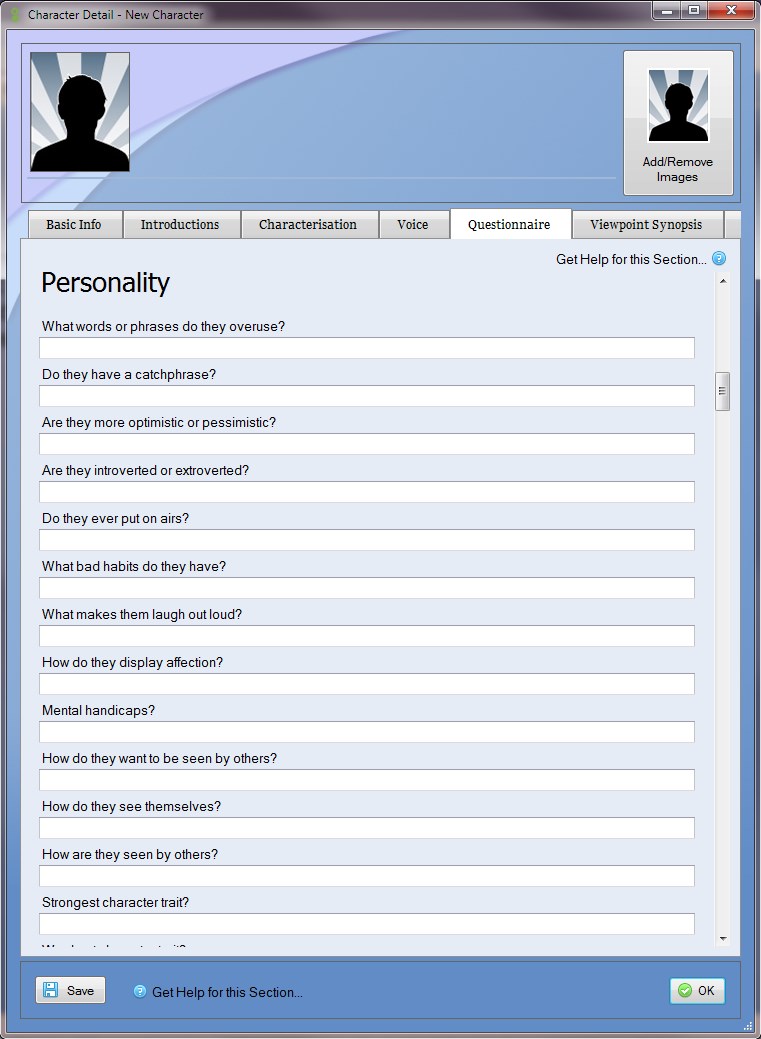
An acquaintance of ours here at EditionGuard - a prodigious reader who edits travel books for a living - once said something that struck a chord with everyone involved in the discussion.
We were talking about whether a person can truly enjoy novels of all genres or if most readers will always gravitate to what they enjoy. When it was turn for her to weigh in she said that she only reads one genre, but that it was a pretty broad one: what she referred to as “character books.”
She went on to explain that she will spend her leisure time reading any novel - literally anything - as long as the characters were fully developed and she could empathize with them. That was her genre. Buying into the motivation of every single person that populates the book’s pages was her main requirement for enjoying a book.

(Source:
stock.adobe.com)
This is a concept that’s worth pondering.
Think about the great books you’ve read. And I mean the truly exceptional ones. It’s pretty likely that you cared deeply about what happens to its characters. You knew where they came from and you hoped that they were headed for specific destinations, both geographically and existentially.
It is impossible to write a novel without characters. And it’s impossible to write a great novel without exceptional characters. People, even fictional ones, are the adhesives that our emotions attach themselves to, and it is essential that writers make their characters as “sticky” as possible.
With that in mind, here are some exercises that novelists can do to create believable, relatable, loveable, and despicable characters.
Justify Their Choices with Compelling Backstories
Whether it’s a power struggle between two people who work together but also happen to be in love with each other or two armies of reptilian cyborgs fighting over the last remaining source of energy in their sub-aquatic world, novels tell the stories of conflict.
And to truly buy into why human beings (or reptilian cyborgs) go extreme lengths to attain what they desire most, readers need to have very clear view of their motivations. Characters don’t risk their lives, manipulate, hurt, and commit genocide without having some pretty good reasons.
And it’s your job, as the creator of these characters, to provide credible justification for the conflict. Know why are they willing to go to these extreme lengths to get what they want and tell the story of what happened to make them this way.
Your readers aren’t going to fill in the blanks themselves. If you don’t illustrate why someone in your story did something out of the ordinary, they are going to find your characters two-dimensional. They are going to find the conflict unrelatable. They are going to close your book and read something else.

(Source:
stock.adobe.com)
What’s the best way to express your characters’ motivations?
There are several methods but here at Edition Guard, we’re fans of
writing a compelling backstory that can exist as a short story outside of the world you create in the novel. There are many ways this “short story” can then be incorporated into the book, either in its entirety, or just the parts that convey what is necessary.
A good approach would be to know what choices you need your characters to make and then work backwards.
- If you know that, at some point, your protagonist has to betray their best friend in order to launch a particular narrative direction, your backstory could include a scenario where their sense of loyalty was compromised.
- If you know that your villain has to make an uncharacteristically compassionate decision that will ultimately contribute to her demise, their backstory should include reference to the one time someone did them the exact same kindness - something they could not resist repaying.
We all do risky and unexpected things because stuff happened to us that renders these decisions feasible. We are all products of our environments and fictional characters are no different.
Describe How They Will Respond To Life-Changing Situations
It’s unlikely that this exercise will be used in the novel itself, but it’s an extremely worthwhile thing to do regardless.
Once you understand where your characters come from and you have a good view of their background, throw them into a unique, life-altering situation and see how they respond. Based on what you know about them, write a page on how each of them behaves in a challenging spot.
This needn’t be a scenario that relates to your story, but it’s possible that some of what you come up with here will be usable in one form or another.
Here are some example situations you can throw them into and questions that you can answer. Write a page on each of these scenarios.
- Your character inherits a small fortune and no longer needs to work for a living. What is the first thing they do? How do they live the rest of their lives? What do they spend the money on? Is this something that causes them long-term happiness, or does it frustrate them? How does it affect their relationships?
- Your character witnesses a “victimless” or justifiable crime. A colleague or friend of theirs is laundering money from a heartless multinational corporation and funneling the funds to a charity. Do they blow the whistle on them, do they turn a blind eye, or do they help?
- Your character is given a superpower. They have the ability to go invisible, or influence other people’s decisions. What do they do with these awesome abilities? Do they attempt to make the world a better place, quietly use it for their own personal benefit, or try to take over the world?

(Source:
stock.adobe.com)
In each of the above exercises, it’s important to get into the head of your character. Write the inner monologue that drives their decisions or imagine a conversation they have with someone on their deathbed, explaining their decisions and actions.
Create a Detailed Historic Timeline
This is not only important because it adds depth to your character and their history, but it also contributes to
continuity. The last thing you want is to create confusing, convoluted backstories that contradict each other, especially if your main characters have a shared history.
Mental Floss recently published a fascinating look at JK Rowling’s plot and character timeline for the Harry Potter universe. Have a look at it by
clicking here.
By sketching out the key moments of their lives on a detailed timeline that includes actual dates and descriptions of the events, you are not only avoiding clumsy contradictions but also creating a mental landscape for your character that you can refer back to at any time to add richness to your character’s memories.
Their memories will not be limited to hazy references but contain details that your readers will find realistic and relatable. Write a particular detail for each event that may have seemed inconsequential to the character while it happened, but adds texture to their background that your readers will appreciate.
Here’s an example
17 July 1990. Ben’s 13th birthday. The day he was attacked by his neighbor’s dog, an event that left him emotionally and physically scarred. Earlier that day he had been extremely irritated that his mother made him wear an ugly sweater his aunt had sent him as a gift. On the way to the hospital, he remembers seeing how the ruined sweater was stained with his own blood and worried whether his aunt would be mad.
Sweat the Small Stuff
The devil’s in the details - a statement that is as relevant when creating a compelling character as anywhere else in life. When building this human being, you need to know them like you know yourself. Ask hundreds of questions about them.
- What do they look like?
- What do they like wearing?
- Do they have any prejudices?
- What habits do they wish they could get rid of?
The best way to do this is to make use of a character questionnaire.
The Novel-Factory has an excellent online tool that allows you to build a rich profile for your characters. Check it out by
clicking here.

(Source:
novel-software.com)
Validate The Idea
So how do you know if you character is actually good? Test it out before you make the final decision!
When you have a few options you're considering, write a super short story, and start using these characters. You can use communities such as Reddit, Facebook groups or even Facebook advertising. Just ensure you follow all of the
Facebook advertising guidelines that have been put into place over the recent years.
How to Apply All of This
Don’t feel too much pressure or obligation to include all of the information you create for your character on the actual pages of your novel.
A lot of the application of these rich backgrounds happens indirectly. You are making your characters human to yourself first. Creating these extra dimensions for your characters makes you have a relationship with them - a crucial dynamic between author and creation.
Having an understanding of what makes them truly unique as humans will translate to the page, whether you directly reference these details or not, and this is something readers will pick up on and respond positively to. That’s a guarantee.
 An acquaintance of ours here at EditionGuard - a prodigious reader who edits travel books for a living - once said something that struck a chord with everyone involved in the discussion.
We were talking about whether a person can truly enjoy novels of all genres or if most readers will always gravitate to what they enjoy. When it was turn for her to weigh in she said that she only reads one genre, but that it was a pretty broad one: what she referred to as “character books.”
She went on to explain that she will spend her leisure time reading any novel - literally anything - as long as the characters were fully developed and she could empathize with them. That was her genre. Buying into the motivation of every single person that populates the book’s pages was her main requirement for enjoying a book.
An acquaintance of ours here at EditionGuard - a prodigious reader who edits travel books for a living - once said something that struck a chord with everyone involved in the discussion.
We were talking about whether a person can truly enjoy novels of all genres or if most readers will always gravitate to what they enjoy. When it was turn for her to weigh in she said that she only reads one genre, but that it was a pretty broad one: what she referred to as “character books.”
She went on to explain that she will spend her leisure time reading any novel - literally anything - as long as the characters were fully developed and she could empathize with them. That was her genre. Buying into the motivation of every single person that populates the book’s pages was her main requirement for enjoying a book.
 (Source: stock.adobe.com)
This is a concept that’s worth pondering.
Think about the great books you’ve read. And I mean the truly exceptional ones. It’s pretty likely that you cared deeply about what happens to its characters. You knew where they came from and you hoped that they were headed for specific destinations, both geographically and existentially.
It is impossible to write a novel without characters. And it’s impossible to write a great novel without exceptional characters. People, even fictional ones, are the adhesives that our emotions attach themselves to, and it is essential that writers make their characters as “sticky” as possible.
With that in mind, here are some exercises that novelists can do to create believable, relatable, loveable, and despicable characters.
(Source: stock.adobe.com)
This is a concept that’s worth pondering.
Think about the great books you’ve read. And I mean the truly exceptional ones. It’s pretty likely that you cared deeply about what happens to its characters. You knew where they came from and you hoped that they were headed for specific destinations, both geographically and existentially.
It is impossible to write a novel without characters. And it’s impossible to write a great novel without exceptional characters. People, even fictional ones, are the adhesives that our emotions attach themselves to, and it is essential that writers make their characters as “sticky” as possible.
With that in mind, here are some exercises that novelists can do to create believable, relatable, loveable, and despicable characters.
 (Source: stock.adobe.com)
What’s the best way to express your characters’ motivations?
There are several methods but here at Edition Guard, we’re fans of writing a compelling backstory that can exist as a short story outside of the world you create in the novel. There are many ways this “short story” can then be incorporated into the book, either in its entirety, or just the parts that convey what is necessary.
A good approach would be to know what choices you need your characters to make and then work backwards.
(Source: stock.adobe.com)
What’s the best way to express your characters’ motivations?
There are several methods but here at Edition Guard, we’re fans of writing a compelling backstory that can exist as a short story outside of the world you create in the novel. There are many ways this “short story” can then be incorporated into the book, either in its entirety, or just the parts that convey what is necessary.
A good approach would be to know what choices you need your characters to make and then work backwards.
 (Source: stock.adobe.com)
In each of the above exercises, it’s important to get into the head of your character. Write the inner monologue that drives their decisions or imagine a conversation they have with someone on their deathbed, explaining their decisions and actions.
(Source: stock.adobe.com)
In each of the above exercises, it’s important to get into the head of your character. Write the inner monologue that drives their decisions or imagine a conversation they have with someone on their deathbed, explaining their decisions and actions.
 (Source: novel-software.com)
(Source: novel-software.com)


